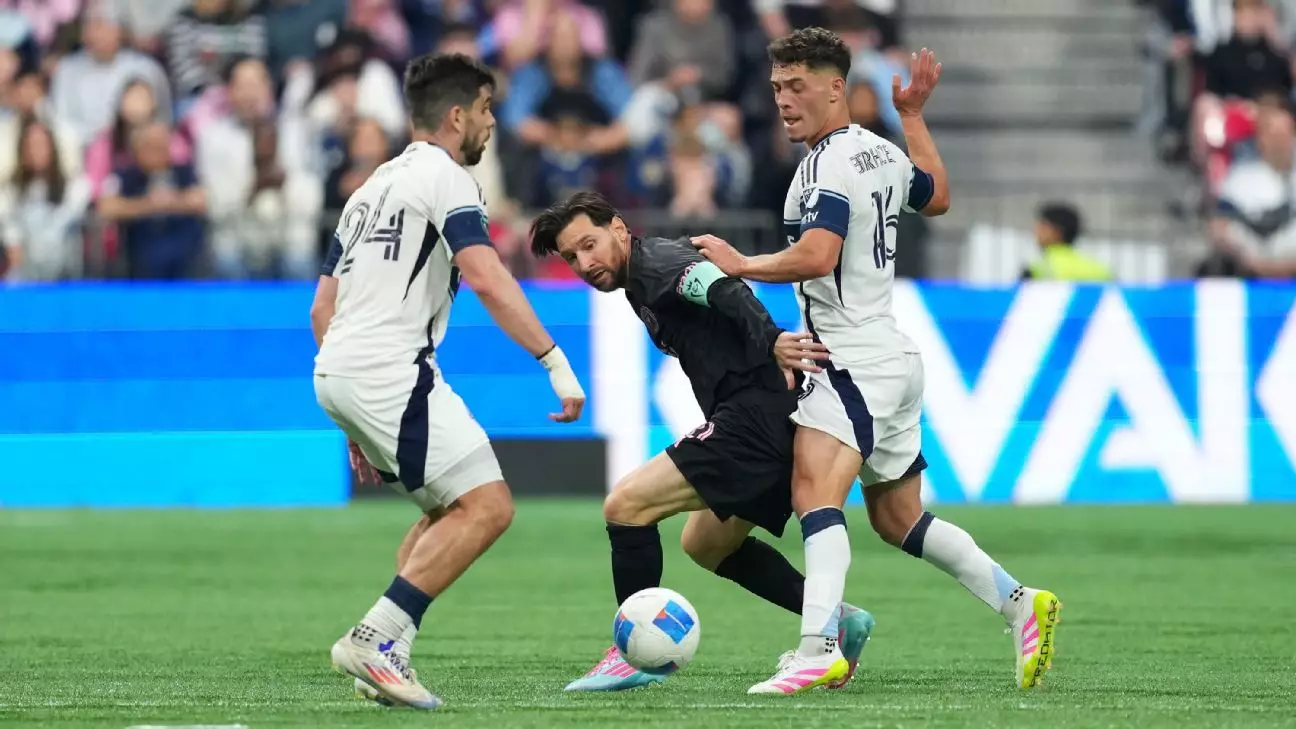In the intense world of professional soccer, the demands placed on players and coaching staff alike can be formidable, particularly when matches come in rapid succession. Inter Miami’s head coach, Javier Mascherano, is acutely aware of these challenges as he navigates the effects of a 72-hour turnaround following the Concacaf Champions Cup (CCC) semifinal against the Vancouver Whitecaps. This predicament is particularly pressing given that the upcoming match against FC Dallas is not merely about securing points; it also serves as a platform for reflection on an earlier defeat and a crucial opportunity to recalibrate the squad.
The rhythm of the game can create a delicate balance between player endurance and tactical execution. Many players are accustomed to a packed schedule, yet the less-than-72-hour frame exacerbates fatigue, which becomes significantly pertinent for elite athletes. In Mascherano’s words, transitioning from a match that concluded late on a Thursday night to an afternoon kickoff barely three days later is not just physically taxing—it’s a test of mental fortitude and deep strategic planning.
Rotating the Lineup: Risks and Rewards
Mascherano has hinted at impending adjustments to the starting lineup, which introduces a layer of complexity to team dynamics. Notably absent from training were key players such as goalkeeper Oscar Ustari and, to some extent, indexed stars like Lionel Messi and Luis Suárez, who may have to reassess their roles in light of the rigorous schedule. This brings such strategic decision-making to the forefront: how does a coach balance the immediate necessities of club performance while considering the larger picture of player health and morale?
The implications of these changes are substantial. A shuffled lineup can either invigorate a team by introducing fresh energy, or it may disrupt established chemistry. For Inter Miami, coming off a disappointing 2-0 loss in the CCC, the need for a winning strategy is vital. It leaves the team searching for not just a performance improvement but a recovery of confidence heading into the clash with FC Dallas.
Mental and Physical Fatigue: The Messi Factor
One of the most talked-about challenges in sports is the hidden toll of fatigue, particularly for players of Lionel Messi’s caliber. Mascherano mentioned that the synthetic playing surface may have contributed to Messi’s sense of exhaustion, a factor that underscores the physical demands placed on players. Synthetic fields, while practical in their maintenance, can lead to increased wear on the body, resulting in fatigue that can affect performance levels.
This scrutiny around Messi’s physical condition is emblematic of the broader environmental factors athletes face, but his capacity to adapt remains remarkable. The critical eye on his fitness is not merely for fanfare; it reflects the expectation that a player of Messi’s prestige should lead his team through adversity. This scenario illustrates an interesting tension: how much responsibility falls on superstars to perform under less-than-ideal circumstances? It raises questions about team reliance and the pressure to deliver when every second counts.
Setting Priorities: Beyond Immediate Matches
While the upcoming game against FC Dallas is undoubtedly essential, Mascherano articulates a larger vision for the team. The CCC represents a milestone for Inter Miami, marking their debut in the semifinals, something that shapes the institution’s identity. After an inspiring comeback against LAFC, the loss to Vancouver is disheartening, but possibly a stepping stone to further aspirations both in domestic leagues and larger tournaments.
Mascherano’s comments reflect a commitment to not only address past defeats but also pivot towards maintaining a solid position in Major League Soccer (MLS). This dual focus on short-term gains and long-term goals showcases a mature understanding of the game’s nuances. By emphasizing a positive outlook for both the current match and the overall trajectory of the season, he rallies his players around a common vision, one rooted in resilience and growth.
Inter Miami must adopt a strategic mindset as they prepare for FC Dallas. In navigating rapid match turnarounds, managing player conditions, and fostering a winning mentality, the challenges ahead can ultimately fortify their resolve in a fiercely competitive soccer landscape.

